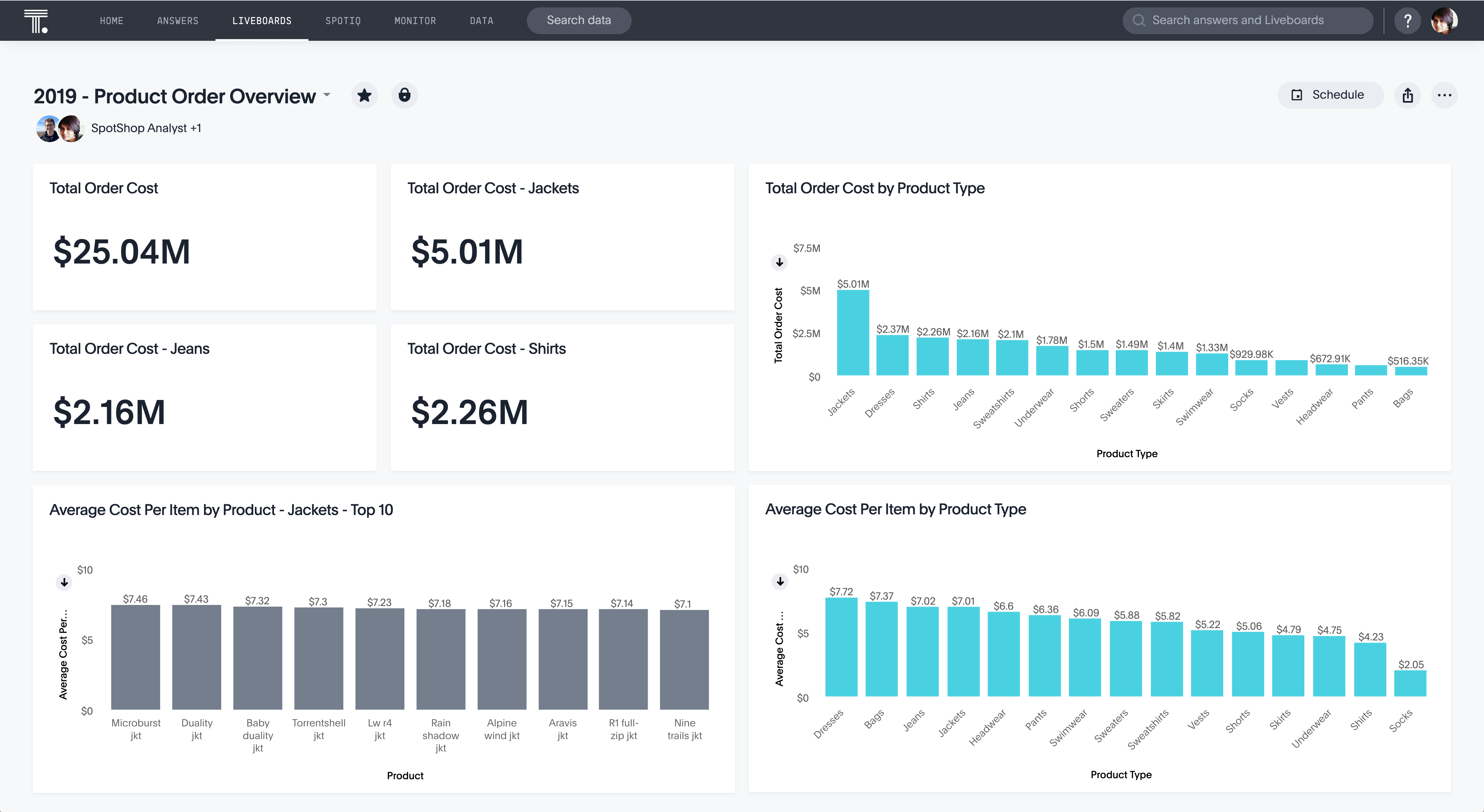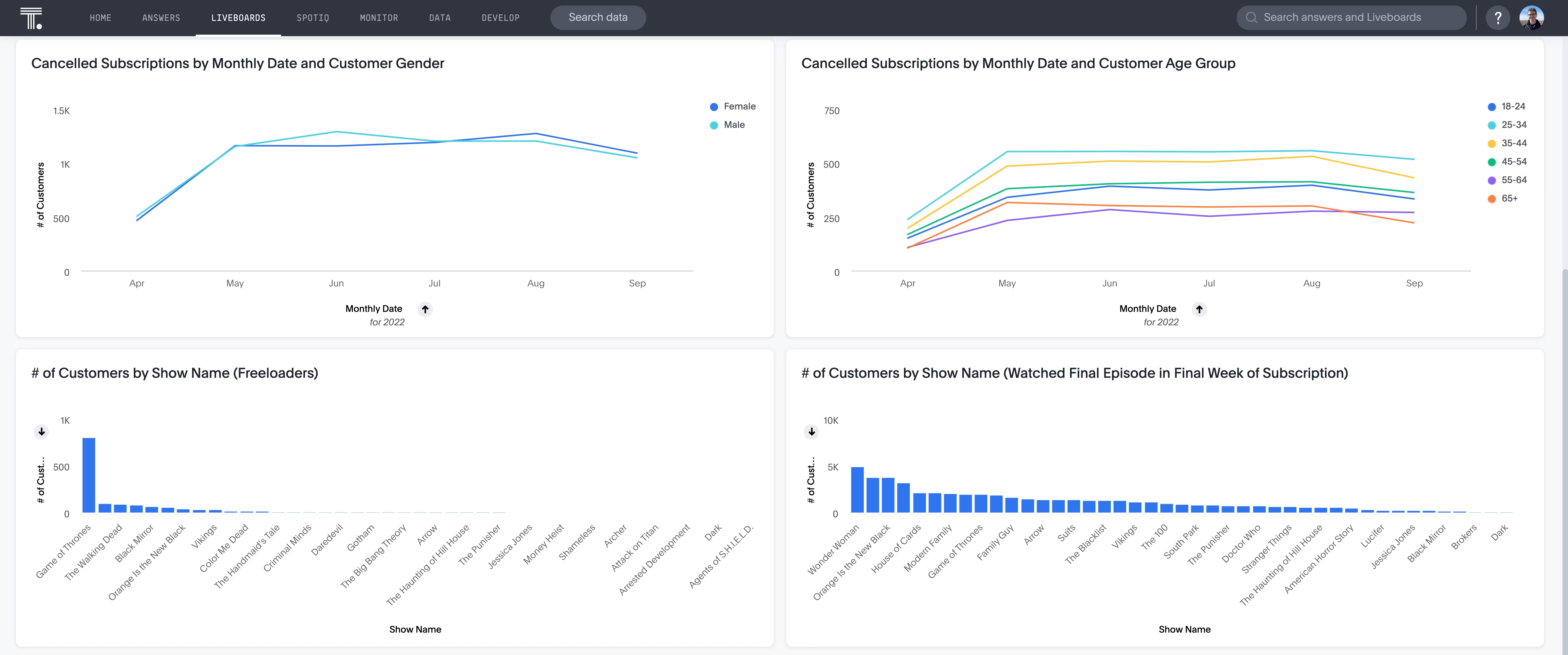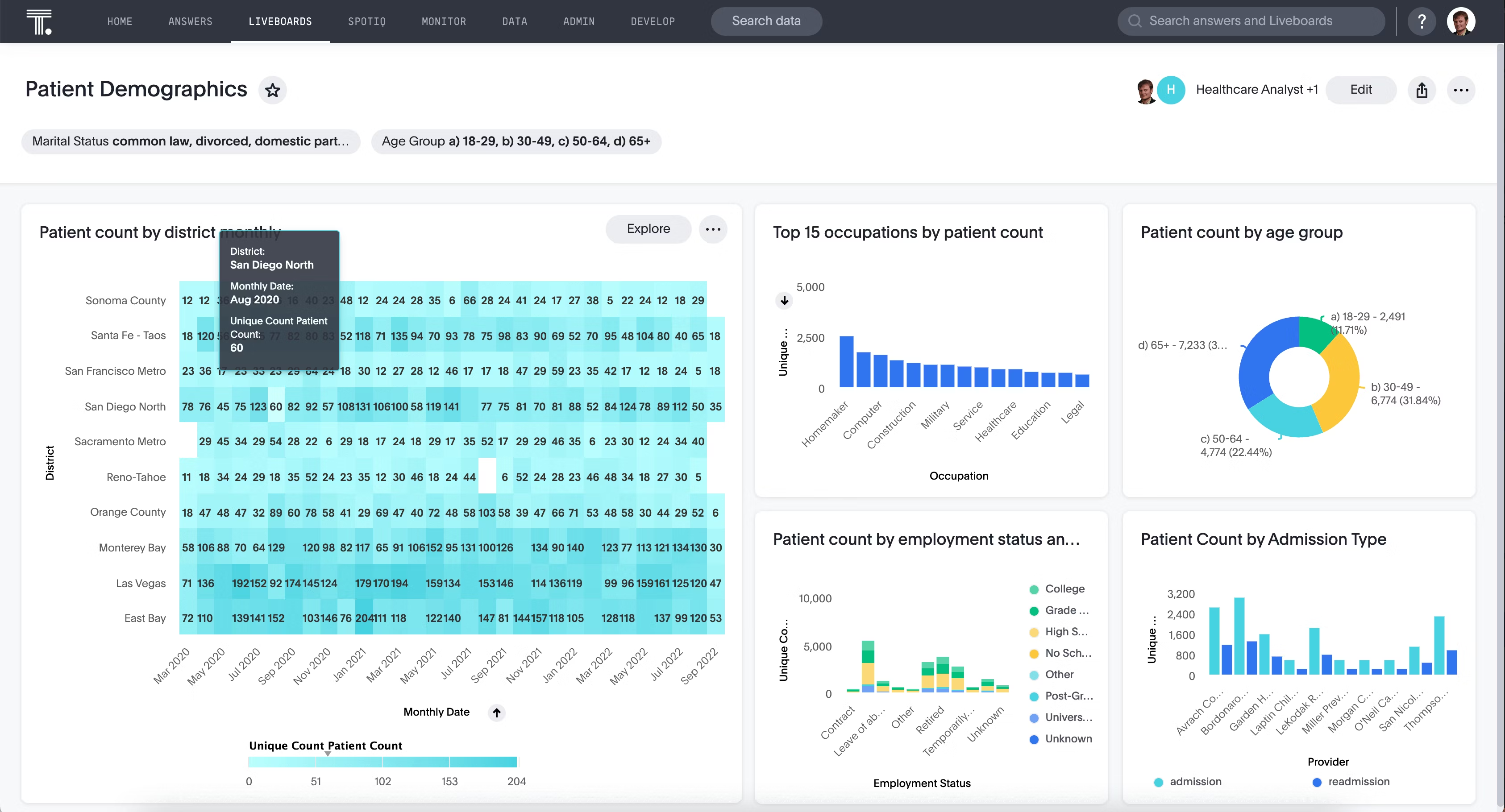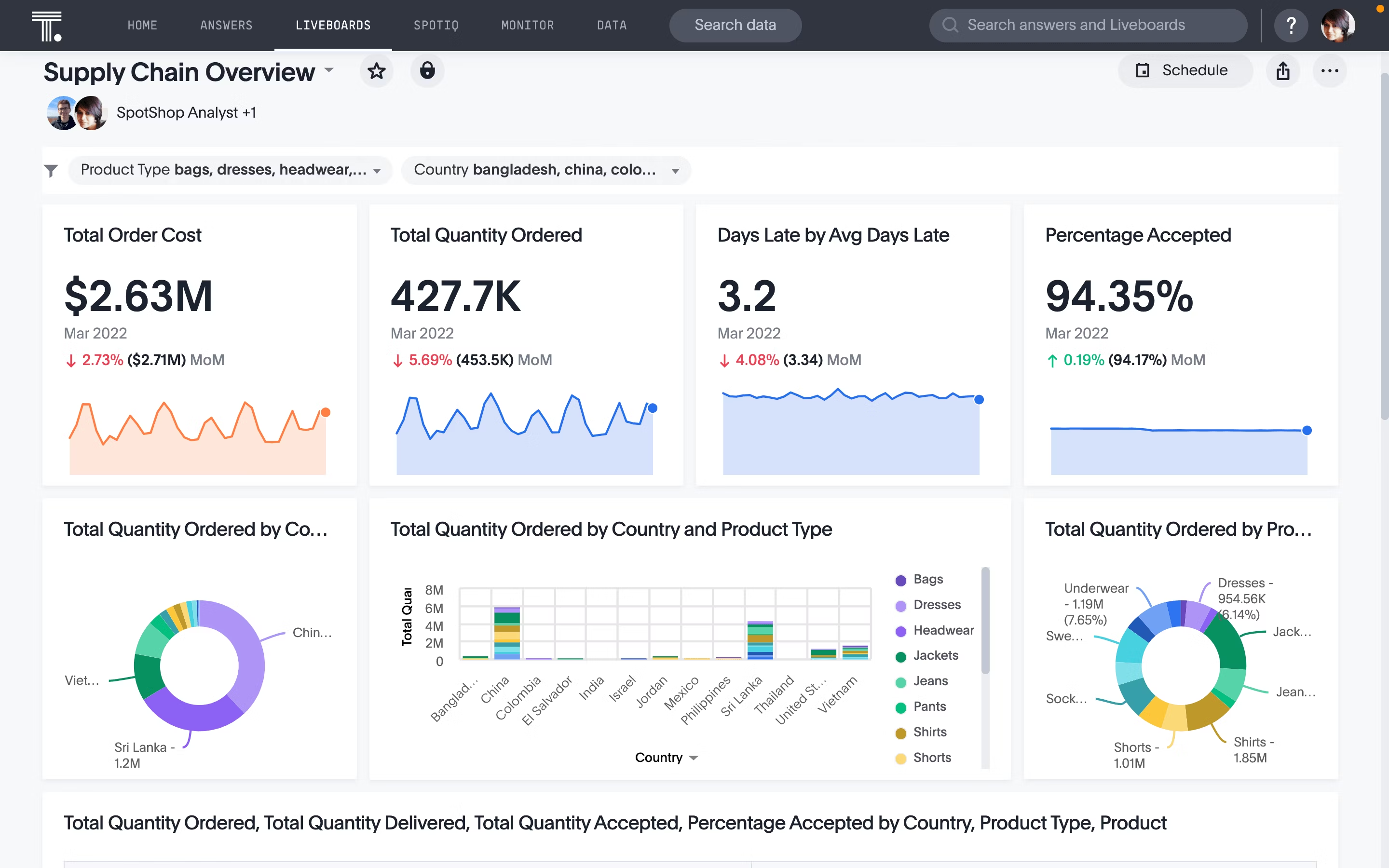Companies winning in today’s economy, especially as we face turbulence and uncertainty, are winning because of how they utilize data. Leveraging the power of data analytics gives organizations actionable insights that can be used to make better decisions and build stronger strategies. However, traditional reporting systems often struggle to provide the flexibility required for fast-changing environments. Fortunately, ad hoc reporting and analysis solutions give teams a more versatile solution when monitoring their operations – allowing them to quickly generate custom reports on demand. It’s why data leaders see it as one of the most important trends in data analytics for organizations looking to scale the impact of their business analytics efforts efficiently.
In this post, we'll examine some of the most popular ad hoc reporting examples and use cases by industry so you can start taking advantage of the power of ad hoc reporting.
1. Retail
Ad hoc reports are essential to retail analytics teams. Using retail BI can provide a better understanding of customer behavior and track sales performance in real time, but legacy tools lack the features needed to find granular insights. With ad hoc reporting, retailers can analyze trends and gain insight into what’s driving their customers to purchase products or visit particular stores. This information helps them optimize operations, develop more effective marketing campaigns, and effectively manage inventory. For example, Canadian Tire empowered business users to use ad hoc analytics with a self service analytics interface from ThoughtSpot to respond in real time to the pandemic. Despite nearly half their brick and mortar stores being closed, they were able to use insights to increase sales by 20% even as the broader retail sector suffered.
2. Finance
Digging into details, finding granular anomalies, and identifying trends is critical for finance professionals to guide their businesses, set strategy and priorities, and mitigate risk. That’s why these BI reports are a valuable tool for financial analytics departments. With ad hoc reports, financial professionals can go beyond simply tracking financial metrics, and drill deeply into topics such as cash flow and return on investment, allowing them to make more informed decisions that change as their customer or markets do. It also helps ensure compliance with government regulations, track investments, and analyze performance data.

3. Manufacturing
For many businesses in manufacturing, managing your supply chain and identifying areas of opportunity for optimization can deliver millions of dollars in revenue. Doing so, however, requires manufactures can pivot on a dime. Ad hoc reporting helps manufacturing analytics teams gain deeper insight into their operations in real time, not weekly or monthly. It allows businesses to track certain manufacturing KPIs such as production levels and identify areas for improvement as the situation with suppliers, buyers, shipping, and logistics and more change. When part of an IoT system, they can also be used to monitor machine performance, allowing companies to minimize downtime and improve efficiency in their manufacturing processes. Additionally, ad hoc reports provide valuable information about quality control measures, helping to ensure that manufactured products meet customer expectations.

4. Telecom
Ad hoc reporting is a valuable component of communication analytics for telecom companies. With ad hoc reporting, telecom companies can analyze customer usage at the most granular levels instead of in aggregates and summaries. They can also track network performance in real-time to maximize up time, balance loads, and more. The ability to deeply explore data without restrictions can also help telecom companies identify new products and services to develop. Additionally, ad hoc reports deliver marketing analytics advantages for enable telecom providers because they can better understand market trends and develop effective strategies for marketing their products and services.

5. Healthcare
If the pandemic taught us anything, it’s that healthcare organizations need to be nimble, while understanding health care patterns in real time, as they emerge. BI uses cases such as Ad hoc reporting is essential for healthcare organizations to be able to agile, drive patient care, and drive solvency. It helps them analyze patient data, track clinical outcomes and identify areas for improvement. Data gathered through ad hoc reports can be used to improve patient care and ensure compliance with government regulations. Additionally, ad hoc reports provide valuable insight into provider performance, allowing healthcare analytics departments to make more informed decisions.

6. Procurement
For procurement analytics departments looking to operate more effectively, ad hoc reporting is a critical part of an organization's business intelligence program. It helps them identify areas of inefficiency and streamline processes for obtaining materials and services, while providing visibility into spending patterns, allowing procurement professionals to better negotiate contracts with suppliers and optimize their budgets. Additionally, ad hoc reports enable them to track supplier performance and ensure that they are meeting their commitments.

Get the answers you need from your data faster
The ability to quickly answer questions and uncover new insights without burdening data teams with every tweak or additional question is essential in today’s business climate.
Luckily, with the right BI solution, ad hoc reporting can be possible for every kind of user at every organization. With ThoughtSpot, anyone in your organization can get the answers they need from your data— regardless of their technical expertise—with a simple search. And because our self service business intelligence platform is powered by AI, you can be sure that the results you’re seeing are accurate and relevant. To see how ThoughtSpot could transform the way you do business, sign up for a free trial today.








